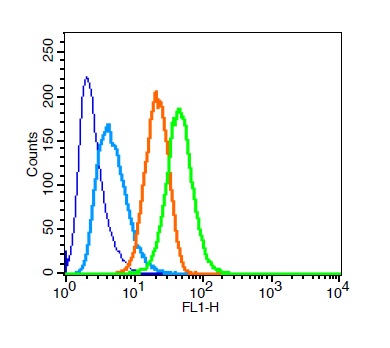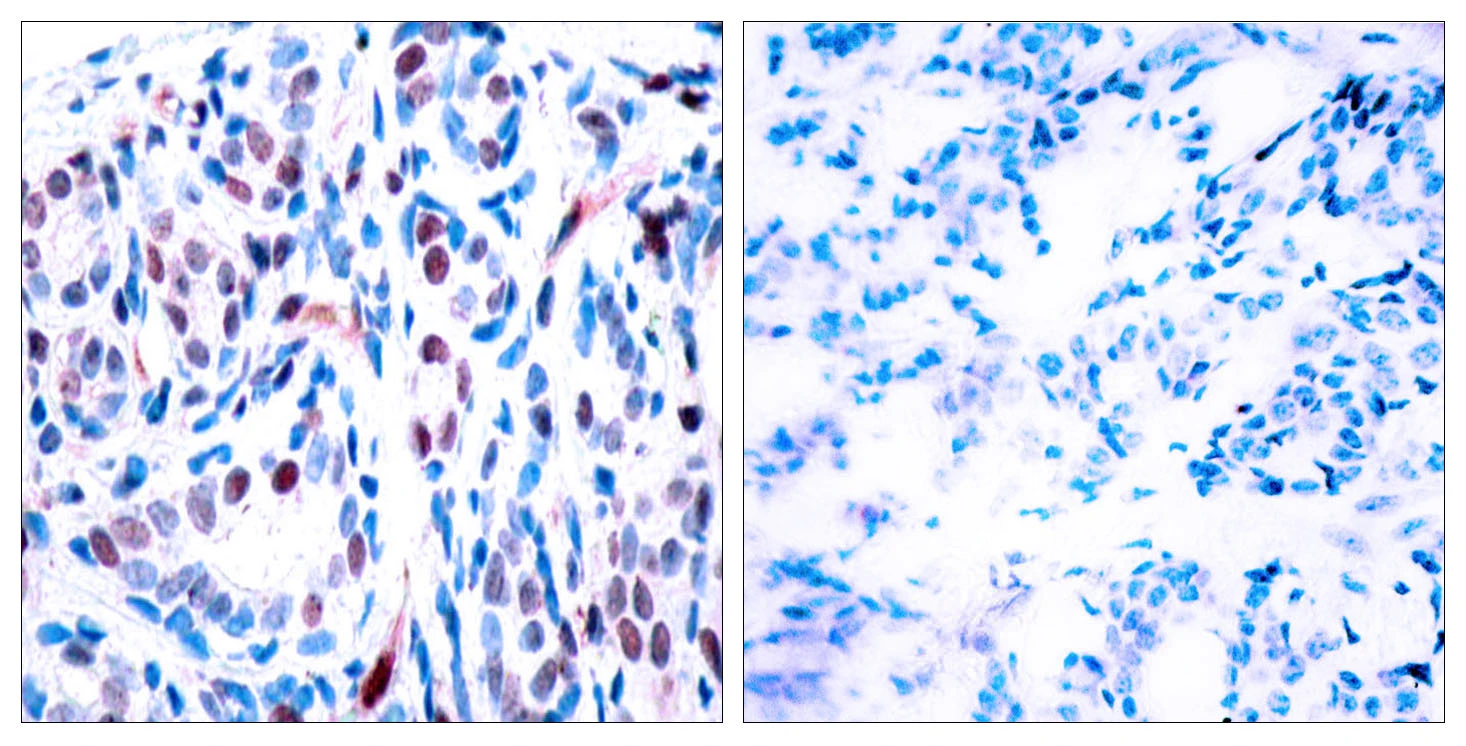![Untreated (–) and treated (+) HeLa whole cell extracts (30 μg) were separated by 7.5% SDS-PAGE, and the membrane was blotted with STAT3 (phospho Tyr705) antibody [GT1204] (GTX00966) diluted at 1:500. The HRP-conjugated anti-rabbit IgG antibody (GTX213110-01) was used to detect the primary antibody. Untreated (–) and treated (+) HeLa whole cell extracts (30 μg) were separated by 7.5% SDS-PAGE, and the membrane was blotted with STAT3 (phospho Tyr705) antibody [GT1204] (GTX00966) diluted at 1:500. The HRP-conjugated anti-rabbit IgG antibody (GTX213110-01) was used to detect the primary antibody.](https://www.genetex.com/upload/website/prouct_img/normal/GTX00966/GTX00966_4000000140_20200313_WB_treatment_hIFN-alpha_w_23053121_556.webp)
Untreated (–) and treated (+) HeLa whole cell extracts (30 μg) were separated by 7.5% SDS-PAGE, and the membrane was blotted with STAT3 (phospho Tyr705) antibody [GT1204] (GTX00966) diluted at 1:500. The HRP-conjugated anti-rabbit IgG antibody (GTX213110-01) was used to detect the primary antibody.
STAT3 (phospho Tyr705) antibody [GT1204]
GTX00966
ApplicationsWestern Blot
Product group Antibodies
ReactivityHuman, Mouse
TargetSTAT3
Overview
- SupplierGeneTex
- Product NameSTAT3 (phospho Tyr705) antibody [GT1204]
- Delivery Days Customer9
- Application Supplier NoteWB: 1:500 - 1:2000. *Optimal dilutions/concentrations should be determined by the researcher.Not tested in other applications.
- ApplicationsWestern Blot
- CertificationResearch Use Only
- ClonalityMonoclonal
- Clone IDGT1204
- ConjugateUnconjugated
- Gene ID6774
- Target nameSTAT3
- Target descriptionsignal transducer and activator of transcription 3
- Target synonymsADMIO, ADMIO1, APRF, HIES, signal transducer and activator of transcription 3, DNA-binding protein APRF, acute-phase response factor
- HostRabbit
- IsotypeIgG
- Protein IDP40763
- Protein NameSignal transducer and activator of transcription 3
- Scientific DescriptionThe protein encoded by this gene is a member of the STAT protein family. In response to cytokines and growth factors, STAT family members are phosphorylated by the receptor associated kinases, and then form homo- or heterodimers that translocate to the cell nucleus where they act as transcription activators. This protein is activated through phosphorylation in response to various cytokines and growth factors including IFNs, EGF, IL5, IL6, HGF, LIF and BMP2. This protein mediates the expression of a variety of genes in response to cell stimuli, and thus plays a key role in many cellular processes such as cell growth and apoptosis. The small GTPase Rac1 has been shown to bind and regulate the activity of this protein. PIAS3 protein is a specific inhibitor of this protein. Mutations in this gene are associated with infantile-onset multisystem autoimmune disease and hyper-immunoglobulin E syndrome. Alternative splicing results in multiple transcript variants encoding distinct isoforms. [provided by RefSeq, Sep 2015]
- ReactivityHuman, Mouse
- Storage Instruction-20°C or -80°C,2°C to 8°C
- UNSPSC12352203

![WB analysis of NIH-3T3 cell extracts with/without TNF-α (20 ng/ml, 37oC, 30 min) treatment using GTX00966 STAT3 (phospho Tyr705) antibody [GT1204]. Dilution : 1:1000 Loading : 25μg WB analysis of NIH-3T3 cell extracts with/without TNF-α (20 ng/ml, 37oC, 30 min) treatment using GTX00966 STAT3 (phospho Tyr705) antibody [GT1204]. Dilution : 1:1000 Loading : 25μg](https://www.genetex.com/upload/website/prouct_img/normal/GTX00966/GTX00966_20200327_WB_1_w_23053121_254.webp)





![IHC-P analysis of human Liver tissue using GTX83103 STAT3 antibody [7G3H4].](https://www.genetex.com/upload/website/prouct_img/normal/GTX83103/GTX83103_20170912_IHC-P_w_23061322_613.webp)
